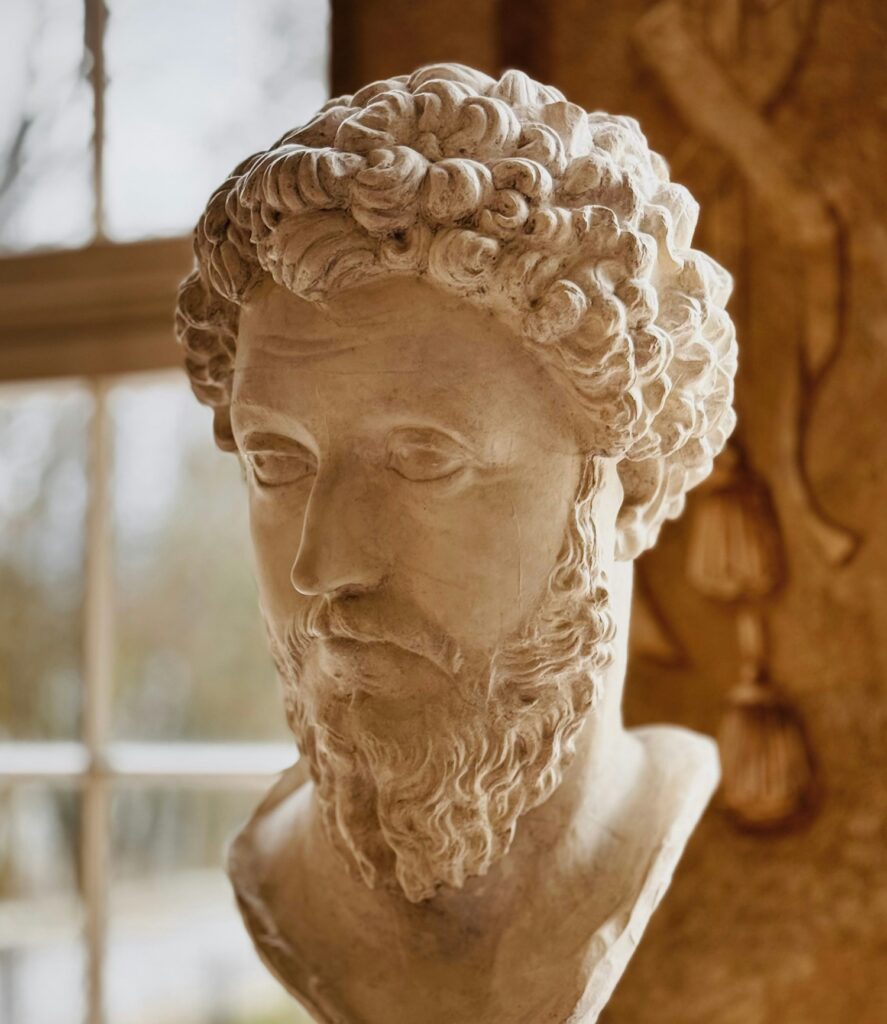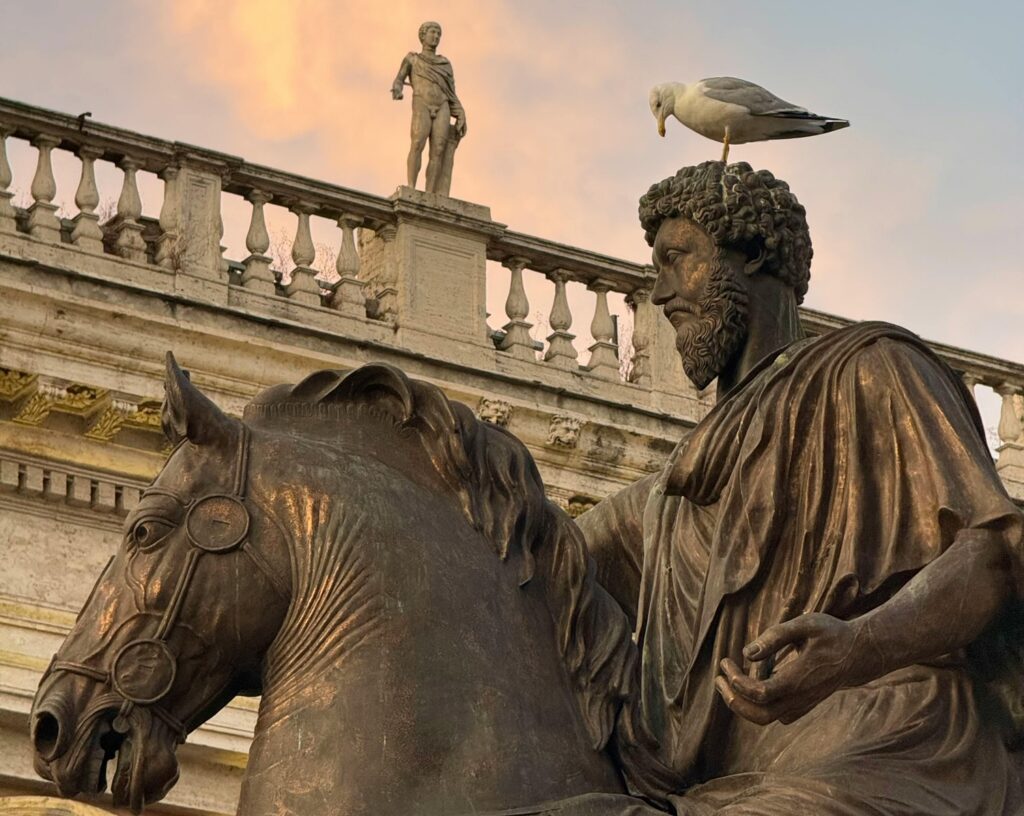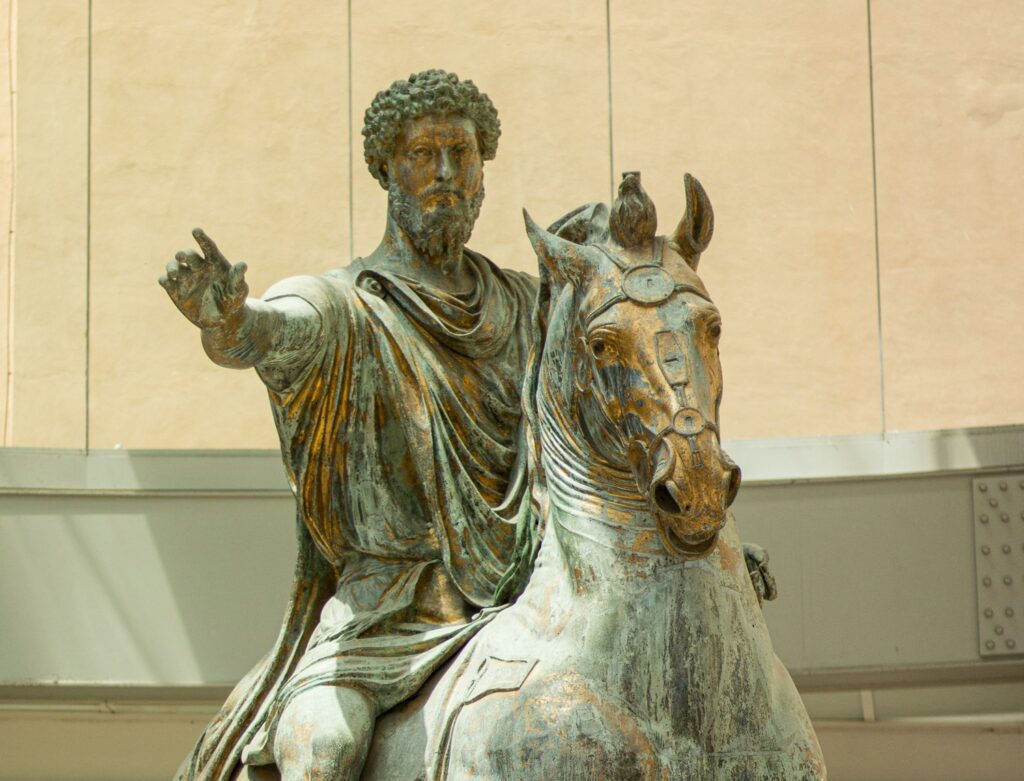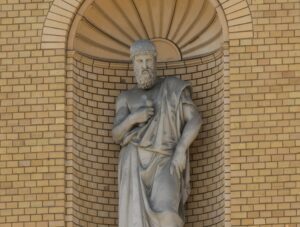Are you familiar with Stoicism? Marcus Aurelius was a Stoic philosopher because he accepted hardships. He never complained.
You will see it in the Meditations, which contains his private thoughts when he was the emperor of Rome from 161 to 180 CE.
Marcus Aurelius was a thoughtful and just emperor who tried to rule wisely despite wars and troubles.
It wasn’t supposed to be for public consumption, but Wilhelm Xylander saw its value and published it, plus a Latin translation.
Later on, more people translated it into different languages.
Meditations Is a Collection of Marcus Aurelius’ Private Thoughts
Marcus Aurelius wrote the “meditations” for himself as journal entries. There was no audience to impress, so the writing was straightforward.
The number of pages depends on the edition of the book. I read the one with around 150 to 200 pages, so I was able to finish it quickly.
Last of the Five Good Emperors
Marcus Aurelius was born in Rome on April 26, 121 CE.
When Antoninus Pius (his adoptive parent who was an emperor) died in 161 CE, he became emperor alongside his adoptive brother Lucius Verus, ruling the Roman Empire together until Lucius’ death.
He was the last of the “Five Good Emperors” because, after him, emperors stopped choosing capable successors by adoption and started passing power to their own families, which led to weaker leadership.
He appointed his biological son, Commodus, as co-emperor and eventual heir. When Commodus ruled, Rome gradually descended into crisis and civil strife.
How to Live Well According to Marcus Aurelius
Even though Marcus Aurelius didn’t write the content of the Meditations to help others, they are out here, and you can use them to live a good life.

Focus on What You Can Control
Life throws problems your way, most of which are outside your control. Worrying about them wastes energy and makes you feel helpless.
Focusing on what you can control gives you peace and keeps you from being upset over what you can’t change.
So, every time, ask yourself: “Is this something I can change, or not?” If the answer is no, let it go. If yes, then do something about it.
Appreciate What You Have
Constantly wanting something better leaves you restless and dissatisfied. Appreciate what you have, especially the good ones.
This creates a calmer, more positive outlook. You don’t envy, so your relationship with everyone is peaceful, which makes you emotionally fulfilled.
Also, it helps you avoid taking things for granted. It is not fun to realize what you had when it is already gone, right?
You Create Your Own Reality
Your experience of reality depends on how you interpret what happens around you. Your thoughts, beliefs, and expectations affect how you see things.
If you change your mindset about failure, for example, it becomes an opportunity to be better. You are not entirely at the mercy of circumstances.
Your Thoughts Are the Source of Your Suffering
Pain is unavoidable. However, most suffering comes not from what happens to you but from how you think about it.
For example, a friend cancels plans because of sickness. But your thoughts might say, “They don’t like me. I am unimportant.” It will make you sad.
Your friend didn’t cause your suffering. Your thoughts did.
Your Well-being Is Tied to the Well-being of Others
You are a social creature. Your well-being doesn’t exist in isolation but is deeply affected by how others around you are doing.
We are part of the same human community. Marcus Aurelius said, “What brings no benefit to the hive brings none to the bee.”
So, be kind, help others, and support those who need it. If you are surrounded by people who feel good, you will feel good.
Spend More Time Doing, Not Thinking
Too much thinking, especially when it turns into endless worrying, traps you in your head. Life is lived through action, not thought alone.
You can plan out your way to your goal, but take steps toward it.

Don’t Hold On to Material Possessions
When you cling too tightly to material possessions, they start owning you instead of the other way around.
You might link your self-worth or identity to them.
Also, clutter weighs you down mentally. The more things you have, the more time, money, and energy it takes to maintain them.
This is why decluttering feels freeing. It removes this mental burden.
Something Is Beautiful Whether You Admire It or Not
You may look to others to decide what or who is beautiful, but this makes beauty fragile and dependent on approval.
Characteristics make someone or something beautiful. It is not about how many compliments they receive.
So, when applied to yourself, just because you don’t get compliments doesn’t mean that you are not beautiful. Don’t hate yourself!
Don’t Seek Praise When You Did a Good Job Because It Is Your Job to Do Good
Doing good work should be its own reward. If you tie your motivation to praise, you become dependent on others’ approval.
You might start working only for recognition, not for the value of the work.
You Will Forget People and People Will Forget You
Life goes on with or without you. No matter how important you feel, you are simply part of the world with over a billion population.
Marcus Aurelius said not to worry about leaving a legacy. People soon forget, and only our present actions truly matter.
Your actions, achievements, and even your name will eventually be forgotten by others, except perhaps close family for a generation or two.
So, since everything is temporary, live fully now. Don’t waste your time seeking fame or worrying about your legacy.

Character Is What You Are in the Dark
“Character is what you are in the dark” is a quote by Dwight Moody, but it is relevant here, as Marcus Aurelius valued inner integrity.
When no one is around to see what you do, there is no reward, punishment, or approval shaping your actions. That is when your real character shows.
If you are honest, kind, or disciplined even in private, it means those values are truly part of who you are. You really have good character.
So, who are you when no one is looking?










